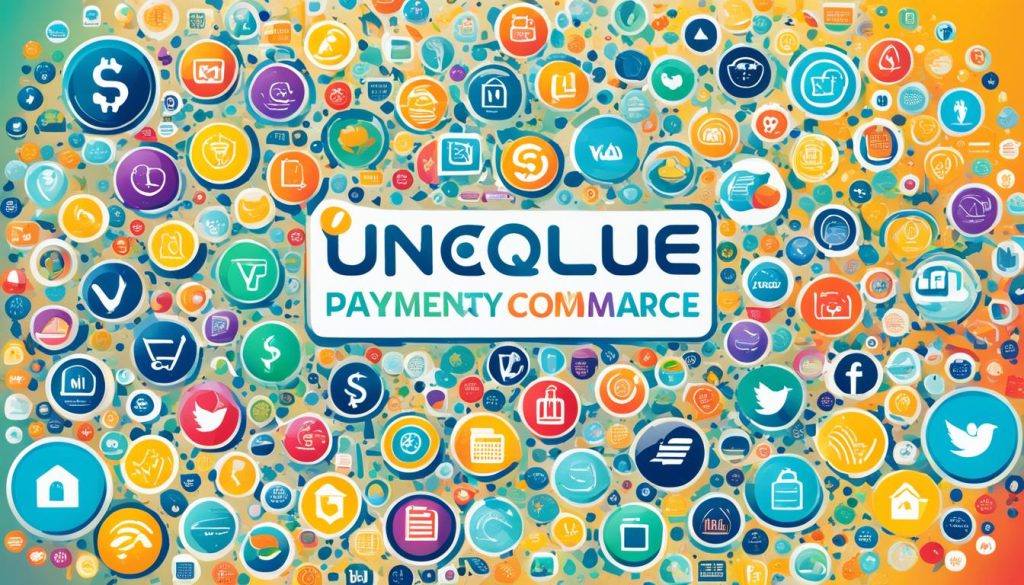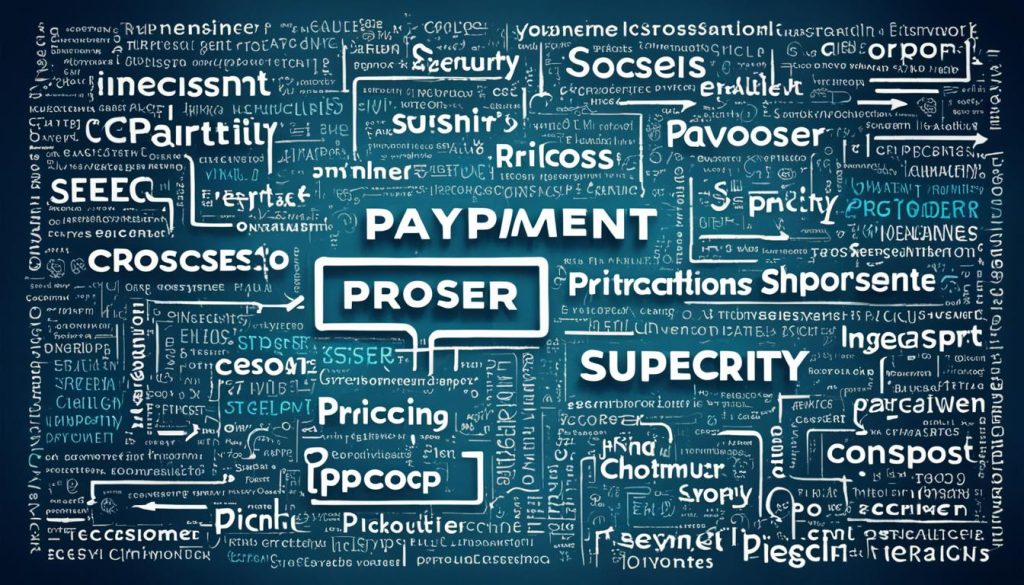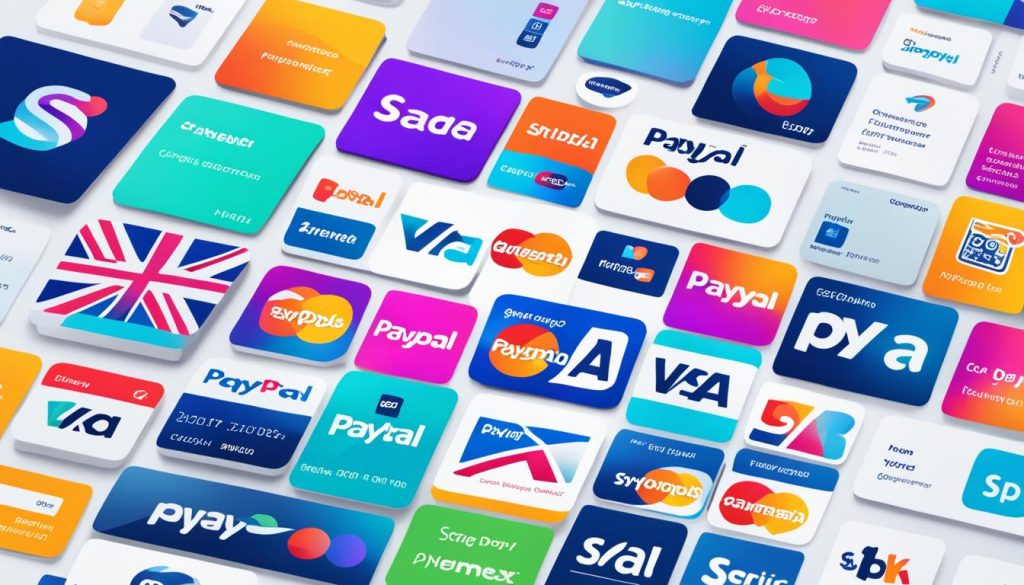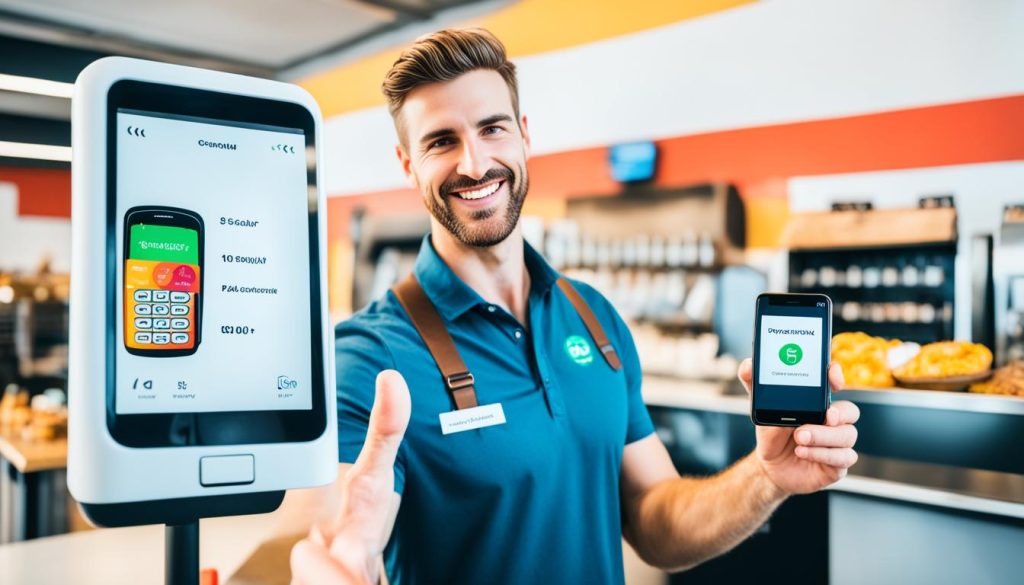In today’s digital landscape, having the right payment system is crucial for the success of any small business in the United Kingdom. As more and more consumers opt for secure online payments and mobile payment integration, small businesses must stay ahead of the curve by offering flexible payment gateways, affordable pricing plans, and easy setup and installation. From fraud protection and recurring billing to analytical reporting, the best payment system for small businesses can make a significant difference in managing cash flow, enhancing the customer experience, and maintaining a competitive edge.
This comprehensive guide will explore the key factors to consider when choosing a payment processor, the top payment solutions for UK small businesses, and the latest trends in online, mobile, and contactless payments. Whether you’re looking to set up your first payment system or upgrade your existing one, this article will provide you with the insights and guidance you need to make an informed decision that aligns with your business’s unique requirements.
The Importance of Payment Systems for Small Businesses
In today’s digital landscape, having a robust payment system for small business is crucial for UK enterprises to stay competitive and meet the evolving needs of their customers. With 80% of the UK population making online purchases, a seamless online checkout and efficient payment processor are essential for small businesses to capitalise on this growing trend.
Payment processors play a vital role in facilitating transactions, transferring information between customers and merchants, and offering valuable services such as reporting tools and fraud protection. This allows businesses to accept a wide range of payment options, improve cash flow management, enhance security, and deliver a superior customer experience – all of which can provide a significant competitive edge in the marketplace.
The digital age has made the payment process more complex for merchants, with the increasing number of mobile payment methods and the need to integrate online and in-store payment systems. Choosing the right payment solution is, therefore, crucial for small businesses in the UK to streamline their operations, reduce administrative burdens, and meet the evolving expectations of their customer base.

What is a Payment Processor?
A payment processor is a critical component in the world of digital payments. It is a third-party system that facilitates the transfer of funds between a customer’s bank account and a business’s bank account. Payment processors play a vital role in authorising transactions and ensuring that merchants are paid within a specified time period.
Definition and Role of Payment Processors
The term “payment processor” is often used interchangeably with “payment gateway,” which is a means of approving a payment. Many firms combine payment processors and payment gateways in one product, making them commonly referred to as a payment gateway. Payment processors are responsible for handling the complex process of transferring funds, while payment gateways approve the payment transaction.
Difference Between Payment Processors and Payment Gateways
The key difference between payment processors and payment gateways lies in their respective functions. Payment processors facilitate the transfer of funds, while payment gateways are the means of approving the payment. This distinction is important, as the digital age has made the payment process more complex, with the growing number of payment methods and the need to integrate online and in-store payment systems.

In summary, a payment processor is a critical component in the payment ecosystem, responsible for the seamless transfer of funds between customers and businesses. Understanding the definition, role, and difference between payment processors and payment gateways is crucial for small businesses in the UK to choose the right payment solution that meets their unique requirements.
Key Factors to Consider When Choosing a Payment Processor
When selecting a payment processor for your UK small business, there are several key factors to consider. These include the payment processor costs and fees, the accepted payment methods, the ease of use and integration, and the security and fraud protection measures offered.
Cost and Fees
The costs and fees associated with a payment processor can have a significant impact on your business’s bottom line. Look for a processor that offers transparent and competitive pricing, including transaction fees, monthly fees, and any additional charges. Compare options to ensure you’re getting the best value for your money.
Accepted Payment Methods
It’s important to choose a payment processor that supports the payment methods your customers prefer, whether that’s credit and debit cards, digital wallets, or alternative payment options. Ensuring a wide range of accepted payment methods can improve the customer experience and increase conversion rates.
Ease of Use and Integration
The ease of use and integration of a payment processor is crucial for a smooth and efficient payment process. Look for a solution that integrates seamlessly with your existing systems and is user-friendly for both you and your customers. This can save time, reduce errors, and enhance the overall payment experience.
Security and Fraud Protection
Safeguarding your business and your customers’ sensitive financial information is a top priority. Ensure the payment processor you choose offers robust security and fraud protection measures, such as PCI compliance, data encryption, and advanced fraud detection algorithms. This can help protect your business from potential financial losses and reputational damage.

Top Payment Processors for UK Small Businesses
For UK small businesses seeking reliable and efficient payment processing solutions, there are several top-tier options worth considering. These include Square, WorldPay, and Small Business Pro – each offering a range of features and benefits to cater to the unique needs of small enterprises.
Square
Square is a popular and user-friendly payment processor that provides a comprehensive suite of tools to streamline the payment process for small businesses. With its intuitive point-of-sale system, Square allows merchants to accept a variety of payment methods, including credit and debit cards, contactless payments, and mobile wallets. The platform also offers features such as invoicing, inventory management, and customer engagement tools, making it an attractive choice for small businesses looking for an all-in-one solution.
WorldPay
WorldPay, a leading global payment processing company, is another excellent option for UK small businesses. With its robust security measures and advanced fraud protection, WorldPay helps small businesses mitigate the risks associated with online and in-person transactions. Additionally, the platform offers a wide range of payment methods, flexible pricing plans, and seamless integration with various e-commerce platforms and accounting software.
Small Business Pro
Small Business Pro is a payment processing solution tailored specifically for the needs of small businesses in the UK. It offers a user-friendly interface, competitive transaction fees, and a range of payment options, including traditional card payments, mobile payments, and online invoicing. Small Business Pro also provides valuable tools for managing cash flow, generating detailed reports, and streamlining the overall payment process.

Best Payment System for Small Business
When it comes to the best payment system for small businesses in the UK, several options stand out. Among them are
Zettle by PayPal
Zettle by PayPal is a comprehensive payment solution that allows small businesses to accept payments both in-person and online. With its user-friendly mobile app and chip and PIN card reader, Zettle offers a seamless payment experience for customers. The platform also provides features like invoicing, reporting, and integration with popular accounting software, making it a popular choice for small businesses looking for a best payment system for small business.
Stripe
Stripe, on the other hand, is a powerful payment processing platform that excels at handling online and mobile payments. With its developer-friendly API, Stripe enables small businesses to easily integrate secure online payment system for small business into their websites and apps. Stripe also offers features like automated invoicing, subscription management, and fraud protection, making it a robust choice for small businesses with a significant e-commerce presence.
GoCardless
For small businesses focused on recurring payments, GoCardless is an excellent best payment system for small business option. GoCardless specializes in direct debit and bank-to-bank payments, allowing small businesses to collect payments automatically and securely. The platform’s integration capabilities and analytical reporting tools make it a popular choice for businesses with subscription-based models or regular invoicing needs.

When selecting the best payment system for small business, small businesses in the UK should carefully consider their specific needs, such as the type of payments they accept, the level of integration required, and the overall cost and fees associated with the payment solution. By evaluating these factors, small businesses can find the zettle by paypal, stripe, or gocardless payment system that best suits their business requirements and provides a seamless payment experience for their customers.
Accepting Online Payments
As the digital age continues to reshape consumer behaviour, small businesses in the United Kingdom must adapt to the growing demand for efficient and secure online payment solutions. According to the first source, 80% of the UK population now makes online purchases, underscoring the importance of incorporating accepting online payments into a small business’s payment strategy.
Amazon Pay
One popular option for accepting online payments is Amazon Pay. Leveraging the trust and familiarity of the Amazon brand, this payment method allows customers to use their existing Amazon account information to complete transactions on a small business’s website. This streamlined approach can enhance the customer experience and increase conversion rates, as customers no longer need to enter their payment details separately.
Opayo (Formerly Sage Pay)
Another leading online payment solution for UK small businesses is Opayo, formerly known as Sage Pay. Opayo provides a secure and reliable payment gateway that integrates with a wide range of e-commerce platforms, making it easy for small businesses to accept online payments through their existing website or online store. Opayo also offers additional features such as fraud prevention, recurring billing, and detailed transaction reporting to help small businesses manage their financial operations effectively.
By incorporating these online payment options, small businesses in the UK can cater to the growing preference for digital transactions, enhance the customer experience, and unlock new opportunities for growth and success.
Mobile and Contactless Payment Solutions
In the wake of the COVID-19 pandemic, the importance of mobile and contactless payment solutions has become increasingly evident for small businesses in the UK. Many locations have implemented safety regulations that require contactless payment options for contact tracing purposes, making these payment methods essential for maintaining a safe and secure environment for both customers and employees.
Importance of Mobile and Contactless Payments
The rise of mobile and contactless payments has transformed the way small businesses in the UK accept payments. These innovative mobile and contactless payment solutions offer a range of benefits, including enhanced convenience, improved customer experience, and reduced risk of cash handling. As more consumers embrace the convenience and safety of mobile and contactless payments, small businesses that integrate these payment options are better positioned to meet the evolving needs of their customer base and stay competitive in the market.
Integrating Mobile and Contactless Solutions
Integrating mobile and contactless solutions into a small business’s payment infrastructure can be a game-changer. By offering a seamless and frictionless payment experience, small businesses can attract and retain customers, improve cash flow, and streamline their operations. From contactless card readers to mobile payment apps, there are a variety of mobile and contactless payment solutions available to suit the unique needs of UK small businesses. Investing in these technologies can not only enhance the customer experience but also future-proof a small business’s payment capabilities.

Fraud Prevention and Security Measures
In the digital age, fraud prevention and robust security measures are paramount for small businesses in the United Kingdom when processing payments. One of the key requirements is ensuring compliance with the Payment Card Industry Data Security Standard (PCI DSS), also known as PCI compliance.
PCI Compliance
PCI compliance is a set of security standards designed to ensure that all companies that process, store or transmit credit card information maintain a secure environment. This protects both the business and its customers from the damaging effects of credit card fraud and data breaches. Meeting PCI compliance requirements, such as implementing secure payment processing systems and regularly monitoring and testing network security, is essential for small businesses to safeguard their payment transactions.
Data Encryption and Tokenization
In addition to PCI compliance, data encryption and tokenization are crucial fraud prevention and security measures that small businesses should consider. Data encryption scrambles sensitive payment data, such as credit card numbers, to make it unreadable to unauthorized parties. Tokenization, on the other hand, replaces sensitive data with a unique identifier, or “token,” that can be used in place of the original data, further enhancing data encryption and security. By implementing these advanced security measures, small businesses can significantly reduce the risk of data breaches and protect their customers’ personal and financial information.

Choosing the Right Payment Solution for Your Business
When evaluating payment solutions, small businesses in the UK should step back and carefully consider their specific requirements. Factors such as the location of their customers, how they prefer to interact with the business, and the preferred billing and collection methods can all influence the choice of the right payment solution.
Evaluating Your Business Needs
Assessing your business needs is a crucial first step in choosing the right payment solution. Consider where your customers are based and how they prefer to make payments – whether online, in-person, or through mobile channels. Understand the billing and collection processes that work best for your business, such as recurring payments, invoicing, or one-time transactions.
Scalability and Future-proofing
In addition to your current business needs, it’s important to consider scalability and future-proofing when evaluating business needs for a payment solution. Look for a platform that can grow with your business, offering the flexibility to accommodate increased transaction volumes, new payment methods, and evolving customer preferences. Choosing a payment solution that is adaptable and future-ready will help ensure your business remains competitive and able to meet the changing demands of the market.
| Key Considerations | Factors to Evaluate |
|---|---|
| Choosing the Right Payment Solution |
|
| Evaluating Business Needs |
|
| Scalability and Future-proofing |
|
Conclusion
This article has provided a comprehensive overview of the best payment systems and processors for small businesses in the United Kingdom. The key takeaways include the importance of having a robust and secure payment solution to streamline transactions, enhance customer experience, and improve cash flow management.
Ultimately, the right payment solution for a small business will depend on its specific needs, preferences, and the expectations of its target customers. By carefully evaluating their requirements and exploring the options presented in this article, small business owners in the UK can make an informed decision and implement a payment system that supports their growth and success.
FAQs
How do I set up a payment system for my small business?
Setting up a payment system for your small business involves several steps. You can start by choosing a payment processor that suits your needs, creating an account, linking it to your business bank account, and integrating it into your website or point-of-sale system. Ensure your payment system is secure, user-friendly, and compliant with industry standards and regulations.
How can small businesses take payments?
Small businesses can take payments using various methods such as credit/debit card processing, mobile payment apps, online payment gateways, cash transactions, checks, and digital wallets like PayPal or Apple Pay. By offering multiple payment options, businesses can cater to diverse customer preferences and enhance their sales opportunities.
What is the best payment method for a business?
The best payment method for a business depends on its specific needs and target audience. Common options include credit/debit card processing, mobile payments, digital wallets, and online payment gateways like Stripe or PayPal. It’s essential to choose a secure, cost-effective, and user-friendly payment method that aligns with your business model and customer expectations.
How much does Stripe charge?
Stripe charges a standard fee of 2.9% + $0.30 per successful transaction for online payments in the United States. International payment processing and other services may have different fee structures. It’s advisable to check Stripe’s official website or contact their support for the most up-to-date pricing information.
What is the popular payment method in the UK?
In the UK, popular payment methods include credit/debit card payments, bank transfers, contactless payments, mobile wallets like Apple Pay and Google Pay, and online payment platforms such as PayPal and Stripe. Contactless card payments and digital wallets are gaining popularity due to their convenience and security features.





